The bakeries of Bamako in Mali
- Published
As soon as the Sun rises in Bamako, Mali, the streets fill with minibuses, street hawkers and dust. But before that, when the few people on the road are those returning from early morning prayers, you'll also see motorbikes loaded with the loaves of French bread that so many will use to fuel their day.
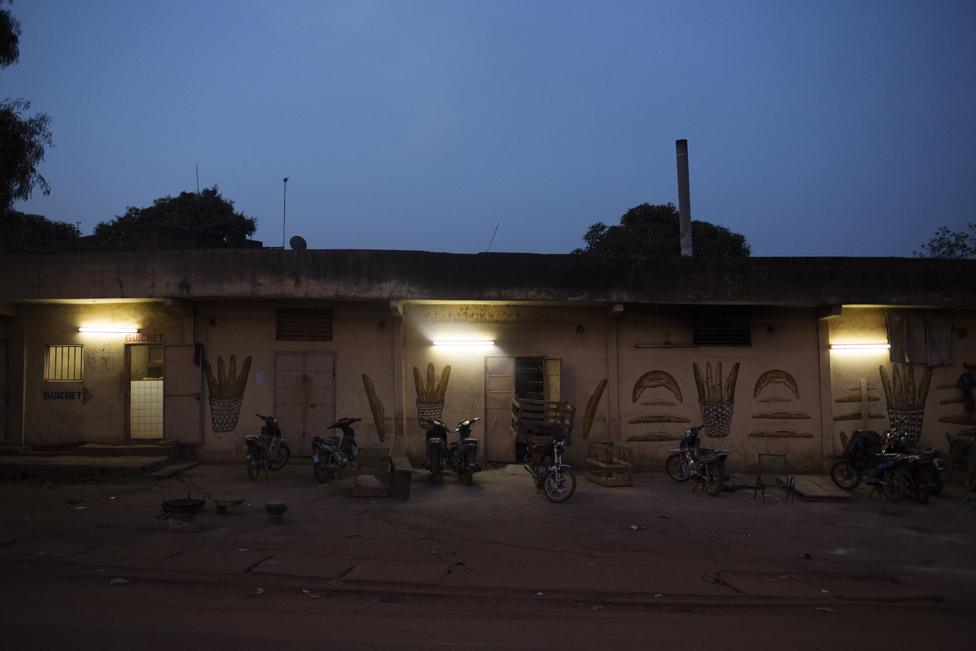
Buru Niouman bakery in Bamako, Mali
Mali has a rich culinary tradition and most Malians eat food native to this region but a French style of bread - flatter and wider than a baguette but with crisp crust and a soft interior - has been enthusiastically accepted.
The bread is produced with flour, salt, water and yeast and this is the usual loaf you'll find in the bakeries in Bamako, even though many of them are adorned with paintings of croissants.
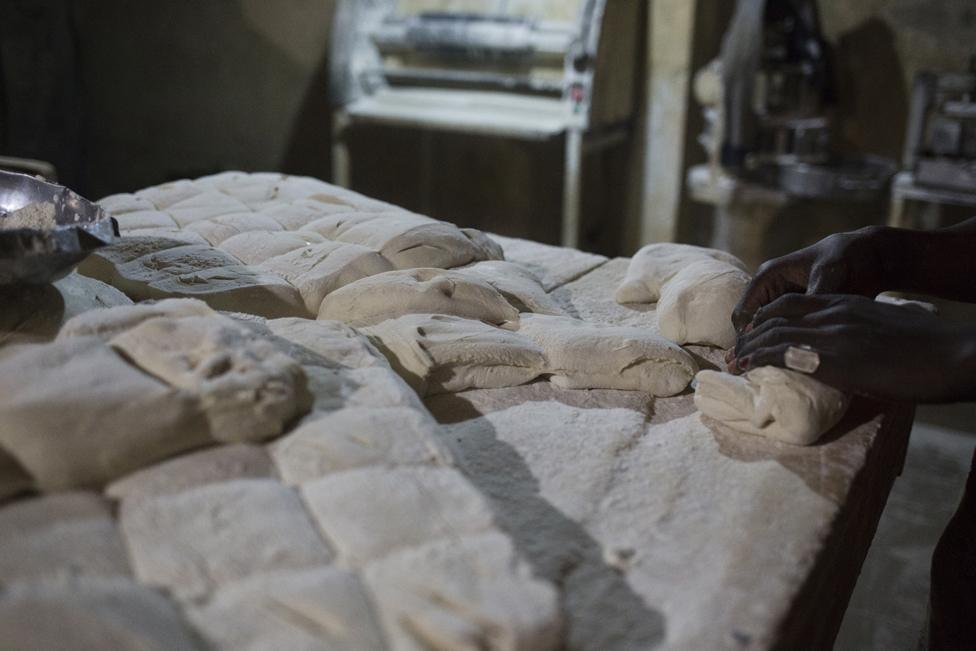
Dough is separated into pieces that will eventually become individual loaves of bread
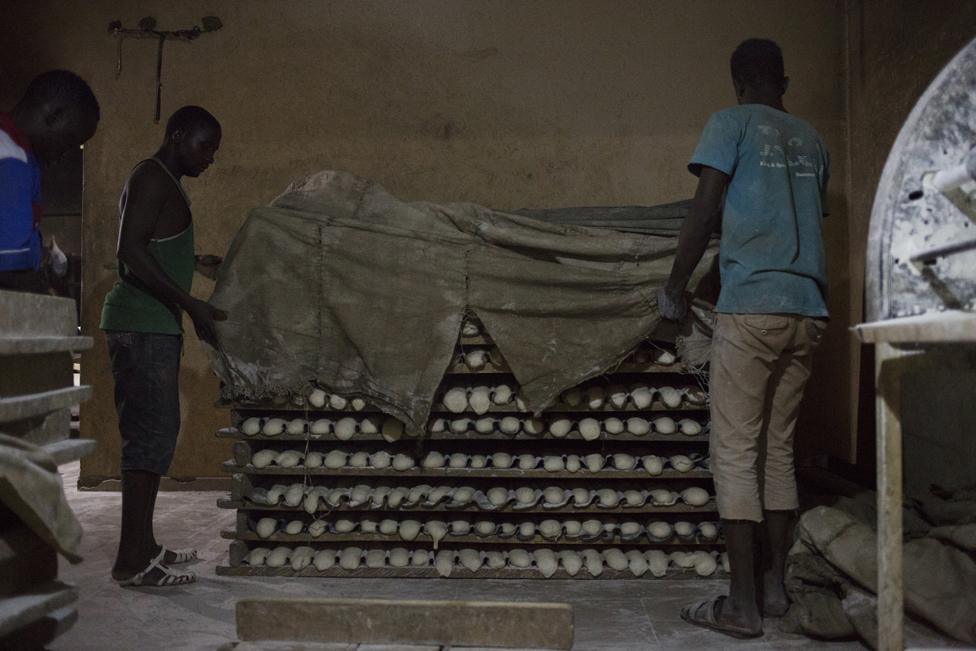
Workers uncover racks of dough that are ready to be baked
Most Malians don't buy bread directly from bakeries but from small shops that sell essentials.
Delivery drivers start their days at 04:00 and the bakery workers even earlier, with the dough being prepared at about midnight.
Loaves are sold in bulk to boutiques, restaurants, roadside breakfast stalls, and marriage celebrations.
The manager of Buru Niouman, Youssef Sogoba, explains that the bakery is responsible for buying the motorbikes that make the rounds each morning, loaded with hundreds of loaves of bread.
"After you deliver 50,000 loaves, you can keep the motorbike," he says.
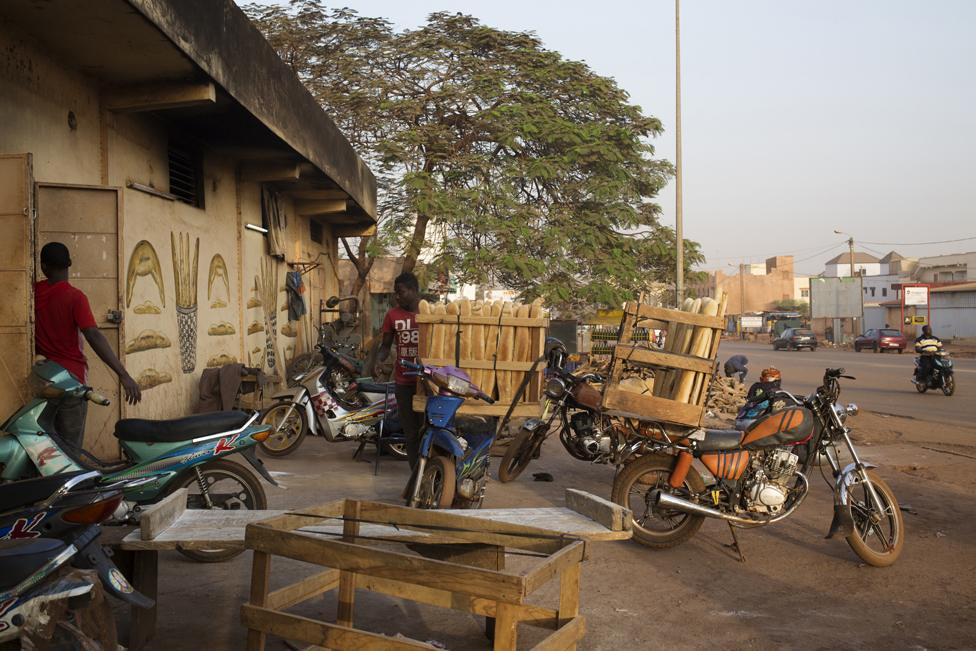
Men prepare motorbikes to be sent out to make deliveries
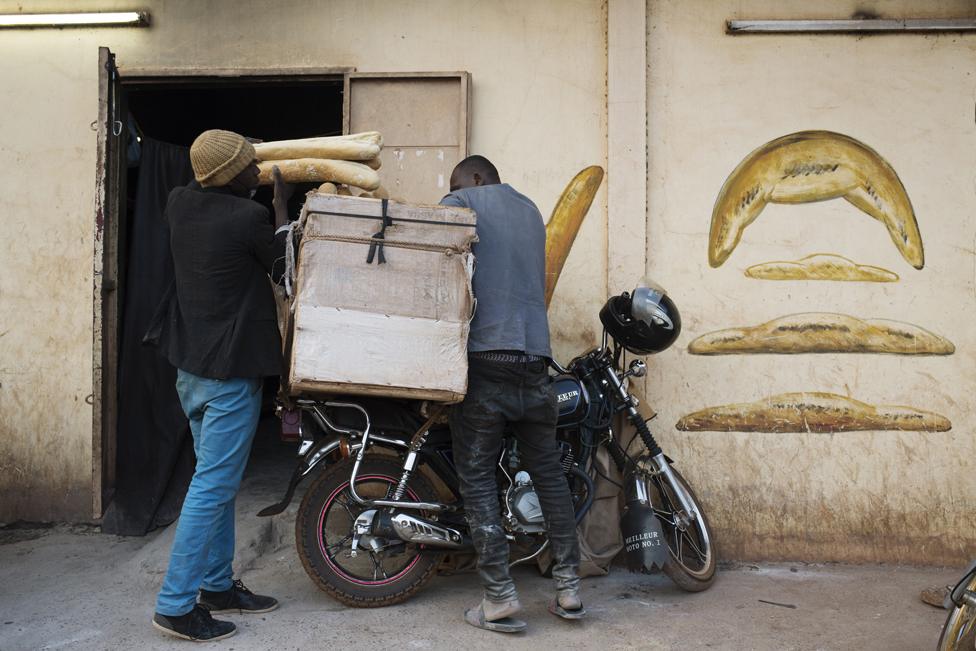
Alhassan Djitteye, who has been delivering bread for 10 years, loads up his motorbike before heading out to make deliveries
Inside the bakery, men wake up from short naps they've taken on mats while waiting for the bread to rise, the final step before placing the loaves into large ovens and sending them out for delivery.
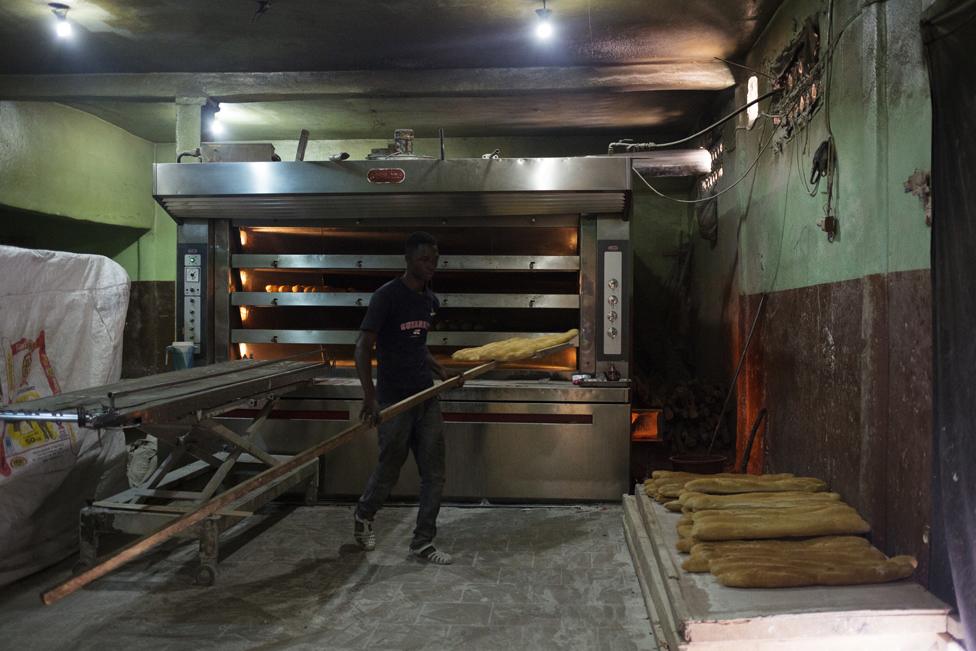
Kalilou Sow takes freshly baked bread out of the oven at Guemou Coura bakery
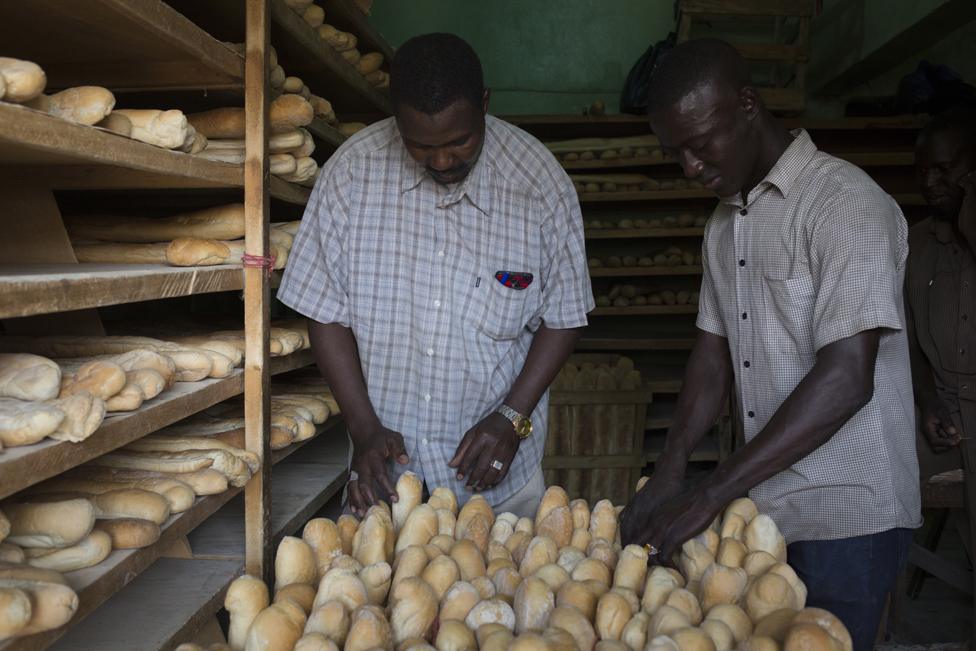
Men prepare bread to be placed on a delivery bike
A loaf of bread about 1m (3ft) long sells for 250 CFA francs (33p). A regular sized bakery can push out 2,500 loaves a day, a larger one twice that.
Although bread isn't a traditional part of Malian cuisine, many Malians eat bread with eggs for breakfast.
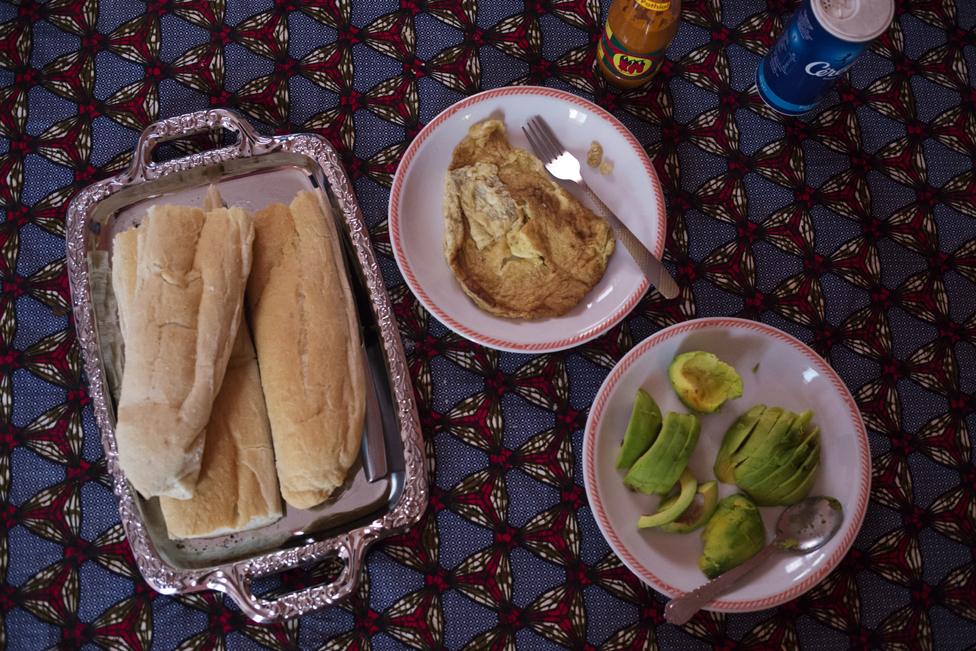
All photos: Annie Risemberg